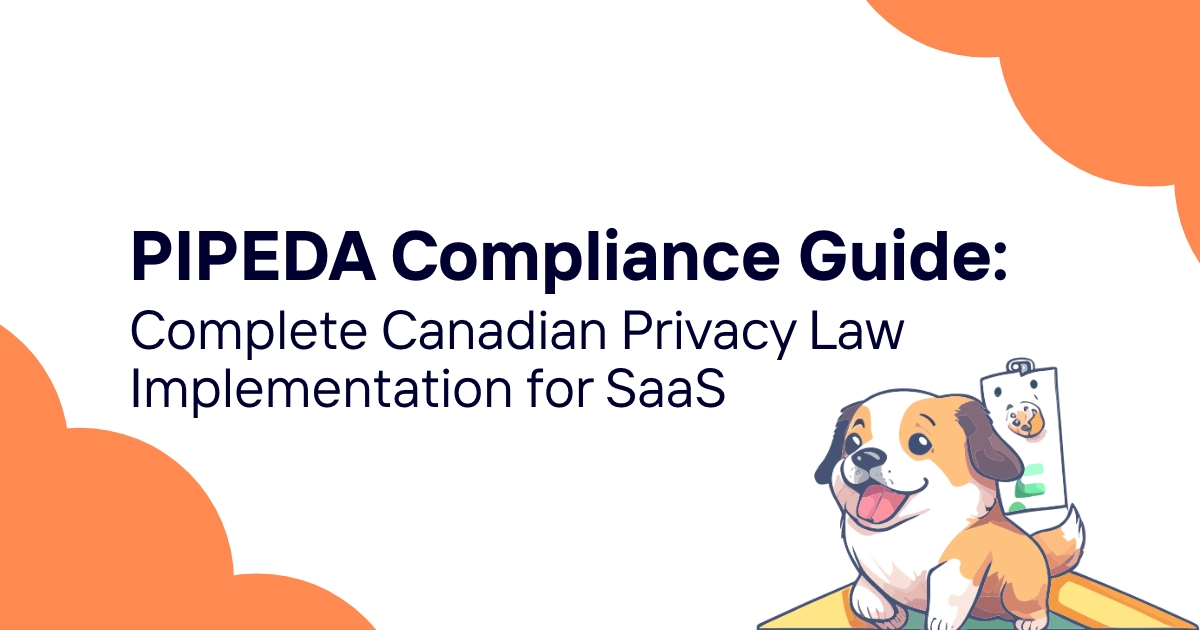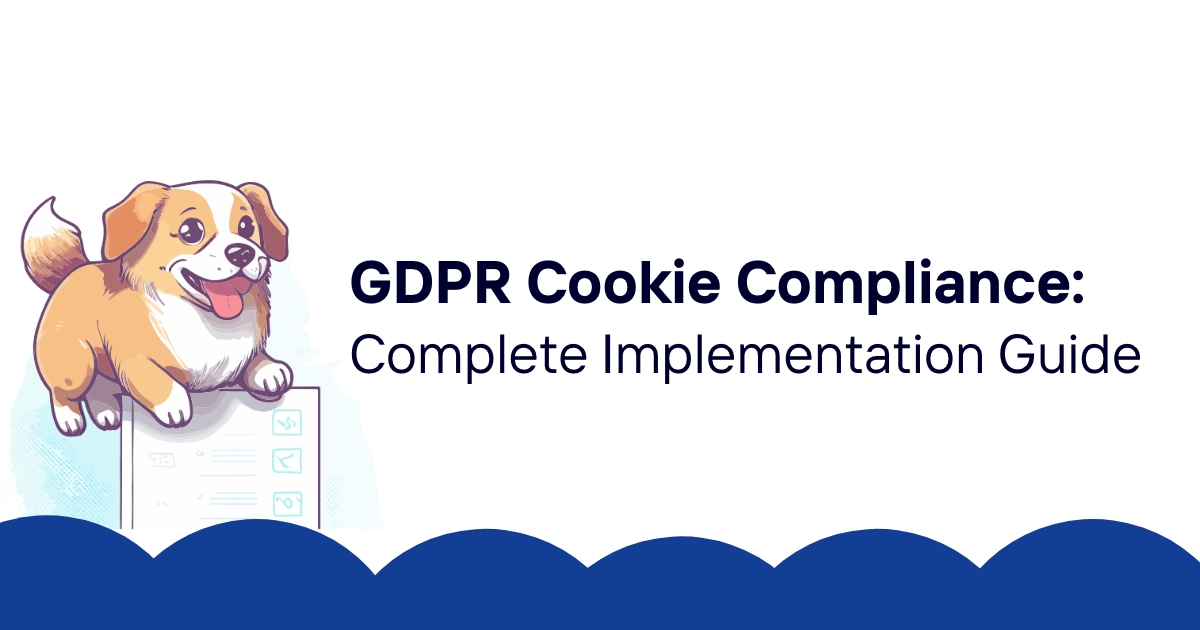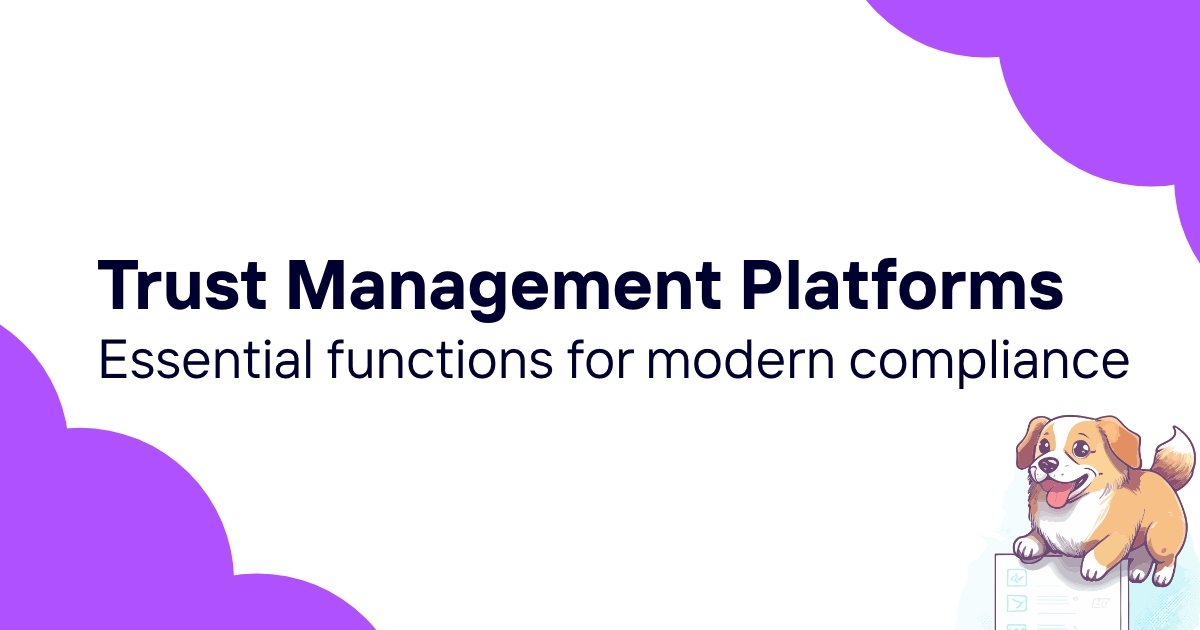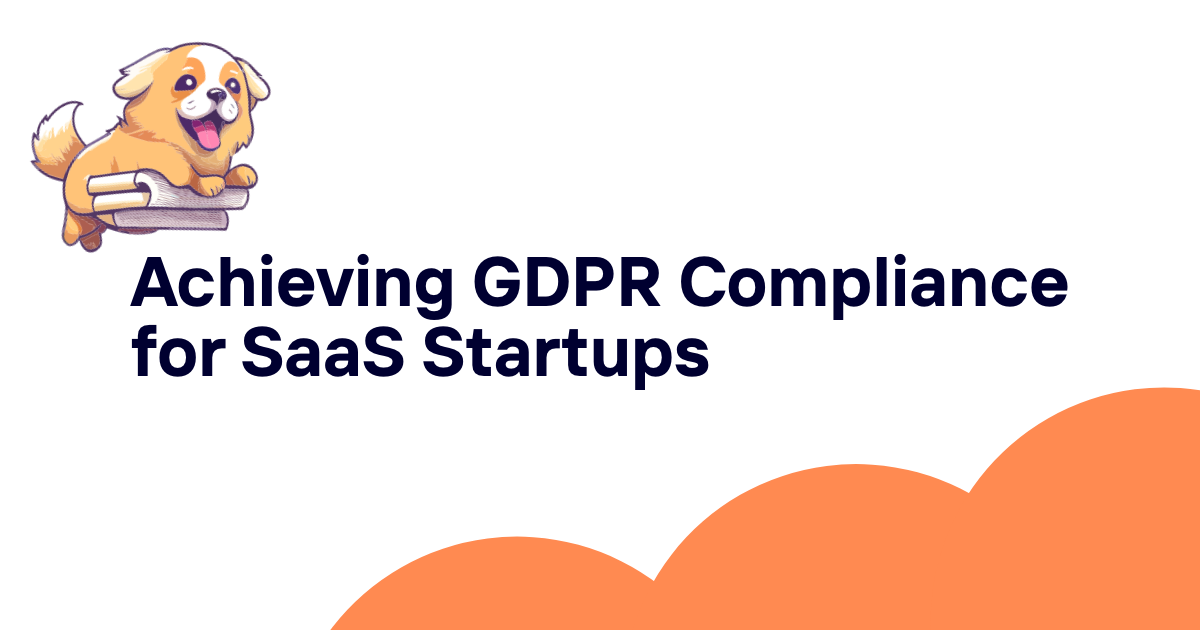Canadian privacy law creates unique compliance challenges for SaaS companies that can't be solved by simply adapting GDPR or CCPA frameworks. PIPEDA (Personal Information Protection and Electronic Documents Act) combines European-style privacy principles with North American business flexibility, creating a regulatory environment that requires specialized understanding.
PIPEDA applies to organizations that collect, use, or disclose personal information in the course of commercial activities. For SaaS companies, this means virtually all customer data processing falls under Canadian privacy law when serving Canadian customers or operating in Canada.
The regulatory landscape is evolving rapidly with Bill C-27 proposing significant updates to Canadian privacy law that would bring PIPEDA closer to GDPR's approach while maintaining distinctly Canadian characteristics. SaaS companies need to prepare for both current PIPEDA requirements and likely future changes.
Canadian privacy enforcement is becoming more aggressive with the Privacy Commissioner of Canada conducting high-profile investigations and issuing substantial recommendations that can significantly impact business operations. SaaS companies that proactively implement strong PIPEDA compliance gain competitive advantages in the Canadian market while preparing for stricter future requirements.
Companies like ComplyDog help SaaS platforms demonstrate their commitment to Canadian privacy law through comprehensive compliance portals that build trust with Canadian customers and support regulatory requirements.
PIPEDA Requirements for SaaS Companies
PIPEDA applies to SaaS companies through commercial activity definitions that cover virtually all customer data processing, creating comprehensive compliance obligations that affect platform design and operations.
PIPEDA's Ten Privacy Principles:
PIPEDA compliance centers on ten privacy principles that guide all personal information handling:
- Accountability - Organizations are responsible for personal information under their control
- Identifying purposes - The purposes for collecting personal information must be identified before or at collection
- Consent - Knowledge and consent required for collection, use, or disclosure
- Limiting collection - Collection limited to what's necessary for identified purposes
- Limiting use, disclosure, and retention - Personal information used only for identified purposes
- Accuracy - Personal information must be accurate, complete, and up-to-date
- Safeguards - Personal information protected by appropriate security safeguards
- Openness - Organizations must be open about their personal information policies
- Individual access - Individuals have rights to access their personal information
- Challenging compliance - Individuals can challenge an organization's compliance
These principles create framework requirements that SaaS companies must implement through policies, procedures, and technical controls.
Commercial Activity Scope:
PIPEDA applies to personal information collected, used, or disclosed in the course of commercial activities. For SaaS companies, this includes customer accounts, usage analytics, billing information, and support interactions.
The commercial activity test captures most SaaS operations including freemium models, trial accounts, and customer acquisition activities. Even non-paying users might trigger PIPEDA obligations if they're part of commercial customer acquisition strategies.
Personal Information Definition:
PIPEDA defines personal information as information about an identifiable individual. This includes names, addresses, email addresses, IP addresses, and behavioral data that can be linked to specific individuals.
SaaS platforms often process extensive behavioral analytics, user preferences, and platform usage data that qualifies as personal information under PIPEDA, requiring comprehensive privacy protection throughout the customer lifecycle.
Organizational Responsibility:
PIPEDA makes organizations responsible for all personal information under their control, including data processed by third-party service providers and integrated platforms.
SaaS companies must ensure their vendors, cloud providers, and integration partners maintain PIPEDA-compliant privacy protection through appropriate agreements and oversight procedures.
For insights on managing vendor compliance across different privacy frameworks, check out our CCPA implementation guide which addresses similar multi-jurisdiction challenges.
PIPEDA vs GDPR: Key Implementation Differences
While PIPEDA and GDPR share privacy protection goals, they have different implementation requirements that affect how SaaS companies build privacy compliance programs.
Consent Approach Differences:
PIPEDA requires meaningful consent that can be express or implied depending on the circumstances. Express consent is required for sensitive personal information, while routine business processing might rely on implied consent.
GDPR generally requires explicit consent for most personal data processing, with limited exceptions for contract performance and legitimate interests. PIPEDA's implied consent concept provides more flexibility for routine business operations.
Individual Rights Scope:
PIPEDA provides access rights that let individuals obtain personal information about themselves and challenge accuracy or compliance. However, these rights are less extensive than GDPR's comprehensive data subject rights.
PIPEDA doesn't include specific rights to data portability, erasure, or processing restrictions that GDPR provides. Canadian individuals can request access and correction, but deletion rights are limited to specific circumstances.
Breach Notification Requirements:
PIPEDA requires breach notification to the Privacy Commissioner of Canada when breaches involve real risk of significant harm. This standard is more subjective than GDPR's 72-hour notification requirement.
PIPEDA also requires notification to affected individuals when breaches involve real risk of significant harm, but without GDPR's specific timeline requirements. Organizations have more flexibility in timing but must act promptly.
Regulatory Enforcement Approach:
The Privacy Commissioner of Canada generally takes a collaborative approach to enforcement, working with organizations to achieve compliance rather than immediately imposing penalties.
GDPR enforcement includes significant financial penalties up to 4% of global revenue, while PIPEDA enforcement typically focuses on compliance recommendations and public reporting of findings.
Canadian Customer Data Protection in SaaS
SaaS platforms serving Canadian customers must implement comprehensive data protection that addresses PIPEDA requirements while supporting efficient platform operations and customer experience.
Customer Data Collection Practices:
PIPEDA requires identifying purposes for personal information collection before or at the time of collection. SaaS platforms need clear disclosure about data use that covers all platform features and analytics.
Implement just-in-time consent mechanisms that explain data collection purposes when customers encounter new features or processing activities. Avoid collecting personal information without clear business justification and customer understanding.
Usage Analytics and Behavioral Data:
SaaS platforms collect extensive usage analytics and behavioral data that requires PIPEDA compliance. This data collection must serve identified purposes and use appropriate consent mechanisms.
Consider whether detailed behavioral analytics require express consent or can rely on implied consent for platform improvement and customer service. Sensitive inferences about customer behavior might need express consent even when derived from routine usage data.
Customer Communication Privacy:
SaaS customer communication through email, chat, and support channels involves personal information that requires PIPEDA protection. This includes communication content, contact preferences, and interaction history.
Implement communication systems with appropriate retention policies, access controls, and consent management that support customer service while protecting communication privacy.
Third-Party Integration Data Sharing:
SaaS platforms often integrate with third-party services that access customer data for analytics, marketing, or functionality purposes. These integrations require appropriate consent and vendor management under PIPEDA.
Audit third-party integrations to ensure appropriate consent exists for data sharing and that integration partners maintain PIPEDA-compliant privacy protection through contractual agreements.
PIPEDA Consent Requirements for Software Companies
PIPEDA consent requirements create specific obligations for SaaS companies that must balance meaningful consent with platform usability and customer experience.
Meaningful Consent Implementation:
PIPEDA requires meaningful consent that is voluntary, informed, and specific. SaaS platforms must provide clear information about data collection purposes and obtain appropriate consent before processing personal information.
Design consent mechanisms that provide genuine choice without creating barriers to platform use. Meaningful consent requires understanding, but overly complex consent processes might undermine both user experience and actual comprehension.
Express vs Implied Consent Decisions:
PIPEDA allows implied consent for routine business activities when customers would reasonably expect the processing. Express consent is required for sensitive personal information or unexpected processing activities.
Develop frameworks for determining when express consent is required versus when implied consent is appropriate. Account creation and basic platform functionality might rely on implied consent, while detailed behavioral analytics might need express consent.
Consent Management Throughout Customer Lifecycle:
PIPEDA consent requirements continue throughout the customer relationship as platform features evolve and new processing purposes emerge. SaaS platforms need dynamic consent management that can handle changing needs.
Implement consent management systems that can seek additional consent for new features or processing purposes while maintaining existing consent for ongoing platform operations.
Consent Withdrawal Mechanisms:
PIPEDA requires providing reasonable means for individuals to withdraw consent. SaaS platforms must implement withdrawal mechanisms that are practical and effective while maintaining platform functionality.
Design consent withdrawal systems that provide granular control over different types of processing while clearly explaining the impact of withdrawal on platform functionality and customer experience.
Privacy Breach Reporting Under PIPEDA for SaaS
PIPEDA breach reporting requirements focus on significant harm assessment and stakeholder notification that requires SaaS companies to develop robust incident response procedures.
Significant Harm Assessment:
PIPEDA requires breach reporting to the Privacy Commissioner when breaches involve real risk of significant harm to individuals. This assessment considers factors like sensitivity of information, circumstances of breach, and probability of misuse.
Develop breach assessment frameworks that can quickly evaluate whether specific incidents meet PIPEDA's significant harm threshold. Consider factors like data types involved, number of affected individuals, and potential consequences of unauthorized access.
Privacy Commissioner Notification:
PIPEDA requires notifying the Privacy Commissioner as soon as feasible after determining that a breach involves real risk of significant harm. Notifications must include specific information about the breach circumstances and response measures.
Prepare breach notification templates and procedures that can quickly compile required information for Privacy Commissioner reporting while supporting ongoing incident response activities.
Individual Notification Requirements:
PIPEDA requires notifying affected individuals when breaches involve real risk of significant harm. Notifications must provide specific information about the breach and steps individuals can take to reduce risk.
Design individual notification procedures that provide clear, actionable information without creating unnecessary alarm. Consider appropriate communication channels and timing that support individual protection while maintaining business operations.
Record Keeping and Documentation:
PIPEDA requires maintaining records of all privacy breaches, including those that don't meet the significant harm threshold for reporting. These records support compliance demonstration and regulatory oversight.
Implement breach documentation systems that track all incidents, assessment decisions, and response measures regardless of whether external reporting is required.
Canadian Data Residency for SaaS Platforms
PIPEDA doesn't require data residency within Canada, but creates obligations for organizations that transfer personal information outside Canada that affect SaaS platform architecture decisions.
Cross-Border Transfer Requirements:
PIPEDA requires organizations to provide comparable protection when transferring personal information outside Canada. This typically involves contractual protections with foreign processors or service providers.
Implement appropriate safeguards for cross-border personal information transfers including contractual protections, security requirements, and ongoing oversight of foreign processing activities.
Cloud Infrastructure Considerations:
SaaS platforms using cloud infrastructure must consider PIPEDA requirements when personal information is stored or processed outside Canada. Cloud service agreements should address PIPEDA compliance obligations.
Evaluate cloud provider data protection capabilities and geographic locations to ensure appropriate protection for Canadian personal information regardless of where processing occurs.
Vendor Management for International Services:
SaaS platforms often use international vendors for various services including analytics, marketing, and customer support. These arrangements require PIPEDA-compliant vendor management and contractual protection.
Develop vendor assessment and agreement frameworks that ensure international service providers maintain appropriate protection for Canadian personal information through contractual and technical safeguards.
Government Access Considerations:
PIPEDA requires considering foreign government access to personal information when evaluating cross-border transfer risks. This includes understanding foreign surveillance laws and government data access powers.
Document foreign government access risks and mitigation measures when transferring Canadian personal information outside Canada, particularly to jurisdictions with broad government surveillance powers.
PIPEDA Compliance Documentation Framework
PIPEDA requires organizations to implement policies and practices that demonstrate compliance with privacy principles, creating documentation requirements that support both compliance and operational efficiency.
Privacy Policy Requirements:
PIPEDA requires clear, understandable privacy policies that explain personal information practices. SaaS platforms need policies that address all platform features and data processing activities.
Develop comprehensive privacy policies that explain data collection purposes, consent mechanisms, retention practices, and individual rights in language that customers can understand and use to make informed decisions.
Procedural Documentation:
PIPEDA compliance requires documented procedures for handling personal information throughout its lifecycle. This includes collection, use, disclosure, retention, and disposal procedures.
Create operational procedures that address routine personal information handling activities while providing guidance for unusual situations and compliance decision-making.
Training and Awareness Programs:
PIPEDA requires ensuring staff understand their privacy responsibilities and receive appropriate training on personal information protection. This includes both initial training and ongoing awareness programs.
Develop role-specific training programs that address PIPEDA requirements for different staff functions while maintaining practical guidance for day-to-day operations.
Compliance Monitoring and Auditing:
PIPEDA requires ongoing compliance monitoring and regular assessment of privacy practices. SaaS platforms need systems that can track compliance and identify improvement opportunities.
Implement compliance monitoring that tracks key privacy metrics, identifies potential issues, and supports continuous improvement in privacy protection practices.
Ready to succeed in the Canadian market? Use ComplyDog and demonstrate your commitment to Canadian privacy law with a comprehensive compliance portal that addresses PIPEDA requirements and builds trust with Canadian customers.


















